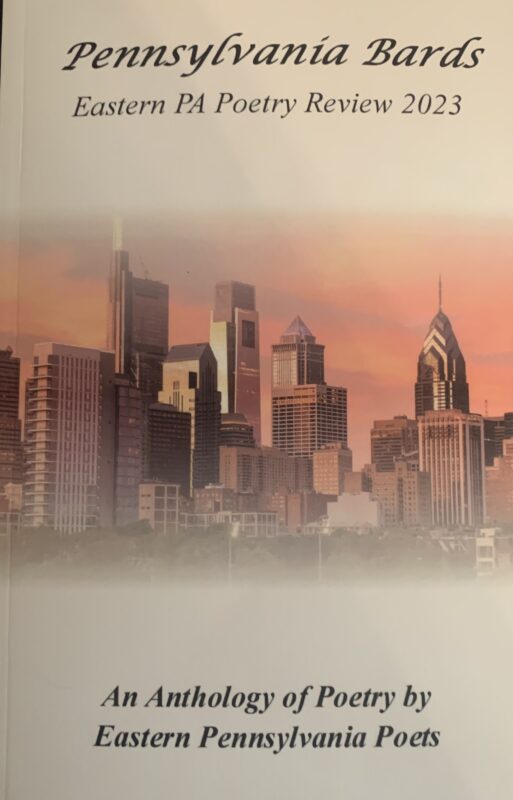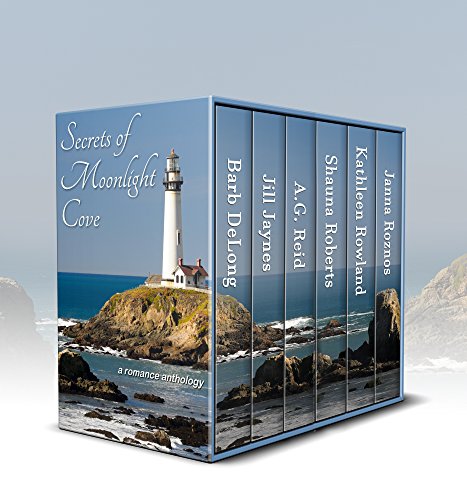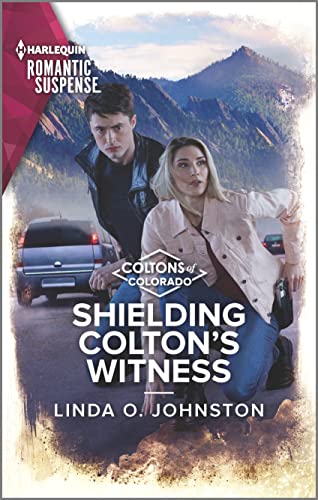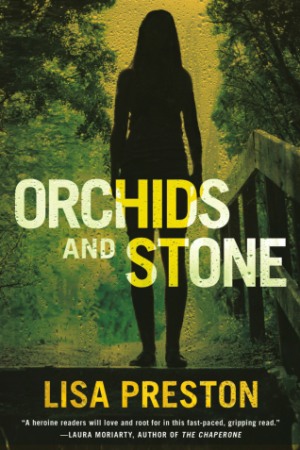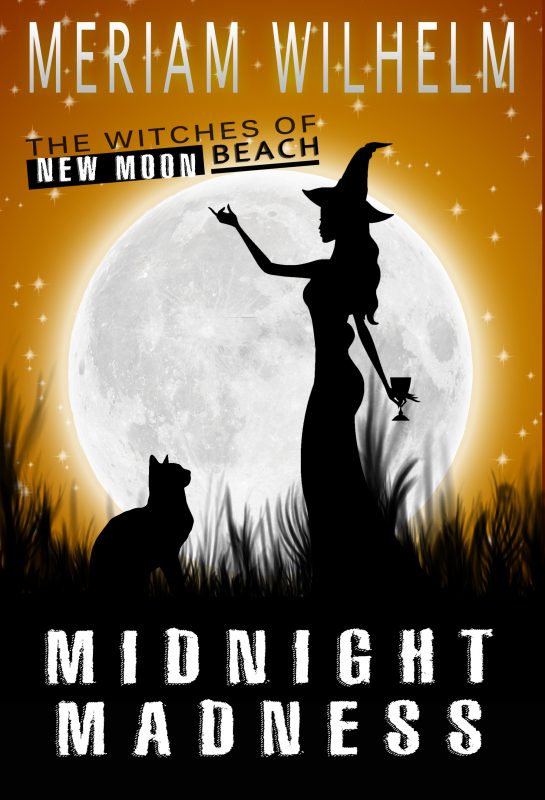THE CHOICE
September 25, 2023 by Kidd Wadsworth in category Infused with Meaning by Kidd Wadsworth tagged as dreams, Flying
This is a true story.
Two nights ago, I had a dream I could fly. I opened my arms wide, pulled the wind toward me and felt my feet lift off the ground. It was glorious. With my engineering-trained mind I quickly sought practical applications.
First, my husband and I went out at night—so the neighbors wouldn’t see—and I picked all of the apples, red and ripe, off the top branches, dropping them one by one into my husband’s waiting hands. Next, I inspected the flat portion of our roof. Never buy a house with a flat roof. We worry about that 10 x 10 section constantly. Then I decided to fly out to Seattle to visit my son. But about three minutes into the flight—I was traveling at approximately 10miles/hour—I realized that Seattle is 3000 miles away. That’s a 300 hour flight.
Hearing a roar overhead, I decided to fly into the clouds and hitch a ride on a passing jumbo jet.
NO!
Those things travel at 600 miles/hour. My head would get blown off.
I suppose even flying has its practical limitations.
In the final image of the dream, I was in the future and my son had a three-year-old daughter. I had volunteered to watch her for the day. As the scene opened, we were gleefully jumping on my son’s bed. Then I taught her to fly. “Open your arms, like this.” I opened my arms, “and pull the wind to yourself.” How quickly she learned.
“Flying is so much fun, Nana.”
When I woke, I immediately understood the dream. I can do the impossible. The choice is mine.
Last night, I had a second dream. I was agitated and rushed. I slipped the car into reverse, stomped down on the accelerator and backed out of the parking space so recklessly that I plowed into the car behind me one row over. Crying and distraught, I called the police and reported the accident. My silver Chevy Malibu—a huge tank of a car with bench seats and a V8—was undamaged. The next morning, again jittery and overwrought by . . . whatever . . . I backed out and hit another car. That night I hit a third vehicle in exactly the same way, this one belonging to Omar, a guide who had been helping me by showing me around town. “You totaled my car!” He grabbed his head in distress. “How am I going to get to work!”
I was taken before a judge.
“I’m so sorry. I was stupid. This is all my fault.”
She took away my driver’s license.
“I don’t know why I did this. I was just so upset and angry.”
I was sentenced to counseling. “You could have hurt someone,” she said. “When I’m satisfied you’re no longer a danger, I’ll give your license back.”
I woke. Immediately, I understood the dream. I am powerful. I can use my power to destroy things and hurt the people I love.
The choice is mine.
My power is my creativity. Most importantly my power is my writing. With my stories I can reveal truth to those who would hide from it. I can comfort the soul of a hurting person. I can unveil oppression. I can say, I understand, and I stand with you. With my stories I give my heart word-wings to fly where I cannot go. And on these wings my readers soar to longed-for futures.
Or I can ravage tender souls with hate and lust and violence.
The choice is mine.
~ Kidd Wadsworth
Kidd’s Stories are in the following anthologies
My Search for Great Adjectives by Kidd Wadsworth
August 25, 2023 by Kidd Wadsworth in category Infused with Meaning by Kidd Wadsworth tagged as adjectives, Dune, Frank Herbert, Worldbuilding, writing
Why was the book Dune by Frank Herbert so successful?
Most people would probably say world-building. Herbert created a compelling futuristic world of suspensor lamps, stillsuits and blue-eyed spice-drugged Fremen, and in it he placed the unassuming Paul Atreides, the character every one of us, male or female, identifies with. But let’s dig a deeper, let’s “get into the weeds” as one of my professors used to say. I’m talking adjectives here. And yes, Herbert was a master.
“The woman was a witch shadow—hair like matted spiderwebs, hooded ‘round darkness of features, eyes like glittering jewels.”
I LOVE THIS SENTENCE!
“witch shadow”
She’s more than evil, she’s powerful. Or is she? Witches, even in the future, only have the power we give them. So, who gave her power? Ut oh, it turns out his mother did. She mated with his father on command. But it gets worse. His mother disobeyed the witch.
“matted spiderwebs”
This phrase feeds on the first. Spiderwebs hide in corners and under chairs. Nearly transparent, they are easy to miss. These words aren’t about her hairstyle. Herbert is telling us that her web, and his mother’s disobedience, has caught something—and his name is Paul Atreides.
“glittering jewels”
I confess. I stole this phrase. Yup. I used it to describe the eyes of a dragon. It screams EVIL.
Herbert’s wonderful adjectives aren’t limited to his prose. Consider some of the titles of his books:
The Godmakers
I like this one because it plays on the well known “Kingmakers.” I guess things are different in the future. They don’t just make kings, they make gods.
Whipping Star
I’ve got read this book. What the devil is a “Whipping” star?
My husband is an Alabama boy. He grew up on the gulf coast. His senior year, he and three others went stag to homecoming. On the way home they drove down to the beach to park and watch the sun come up. Not yet legal, they nonetheless were well supplied with beer. They popped a few open, loosened their ties, kicked off their shoes . . .
Waves, coming in the open car windows, woke them up. Nope, the car didn’t make it out alive.
Often my adjectives are like the story you just read—painfully predictable. A great book—or a great poem—helps me splash my readers in the face with borrowed gems. I am also learning to link my adjectives as Herbert did with “witch”, “shadow”, and “spider-web”, to create a picture within a picture. We not only know what the woman looks like, we know she is of the dark, moves in the dark, and more dark is coming.
Happy Writing!
Dreams in Writing
July 25, 2023 by Kidd Wadsworth in category Infused with Meaning by Kidd Wadsworth tagged as assassins, dreams, dreams in writing, kidd wadsworth, nightmares
I woke at two in the morning from a nightmare in which I was being hunted by an assassin. In the dream, desperate to get away, I hid on the third floor of an abandoned building. I remember looking out the dirty windows and seeing the assassin below in the parking lot looking up at me. He was tracking my cell phone.
I removed the sim card and, just for good measure, smashed the phone.
Two days later, he almost caught me hiding in a bakery. The owner, an old friend, came rushing into kitchen whispering, “The man you described just walked through the front door.” I ducked out the back and hid on the fire escape. As he left, I saw him glance up at the street cams.
Damn.
I hitchhiked into the Indiana countryside. I figured I was safe among the endless fields of ten foot tall cornstalks. I was wrong. As I turned and ran, he shouted after me, “You’ll never get away, I’ve tapped into the satellites.”
That’s when I woke up. Everything was familiar: my bedroom, my sweetie softly breathing beside me. I wasn’t afraid; I was curious. How would I evade an assassin? I turned to that great fountain of wisdom, the TV. As my husband slept, I searched Netflix and Amazon Prime for a movie that would show me how to escape.
Click. Click. Click.
I clicked almost as many times as Indiana has ears of corn. Then I discovered a Bruce Lee movie! Yes! Surely, Bruce would know how to evade an assassin.
Guess what? Bruce Lee never evades. He never hides. He confronts his enemies. He turns to face them, looks them straight in the eye, and kicks butt.
That’s when I knew who the assassin was. My assassin was a family problem. Yes, I wanted to hide. And yes, I definitely wanted to smash my cell phone, but I couldn’t get away. I had to become Bruce Lee. I had to face my problem head on. I needed to look it in the eye—and kick butt.
So, why did I tell you this?
I recently read a fascinating book called Dreams: God’s Forgotten Language by John A. Sanford. I believe dreams can add depth and, strangely, genuineness to a story. But there’s a catch, and it’s a big one. You’ve got to get it right. Dreams follow certain patterns—unobvious patterns—that we all instinctively recognize. So, if you want to put a dream sequence in your story, read an authoritative book about dreams and common reoccurring images in dreams, first. Otherwise, the dream won’t read as “real.” Rather it will seem contrived, a way too convenient plot device, and pop the reader right out of the story.
BTW, I did actually dream about being hunted by an assassin, and I do think my subconscious was telling me to stop running away from my problems. I’m currently working on becoming Bruce Lee, but he’s a difficult act to follow.
Happy Writing!
Kidd Wadsworths Has Stories in the Following Anthologies
Ten Gifts Friends Bring
June 25, 2023 by Kidd Wadsworth in category Infused with Meaning by Kidd Wadsworth tagged as friends, friendships, kidd wadsworthby Kidd Wadsworth

- New Experiences.
I was raised by two very economically savvy people. They had rules: always pay your credit card balance on time, spouses should have separate checking accounts, and never, I mean never, buy into a captive market. On one of our first dates, my soon-to-be-husband took me to a movie—and he bought popcorn! I was mortified. I got over it. Popcorn at movies is fantastic! - The Joy of Shared Experiences.
The world is so much more thrilling when you have someone beside you. Look! See that? - Someone to listen to me.
All of us desire to be known, to be understood. Since age 11, reoccurring, physical pain has been my unwelcome companion. There is no cure. Trust me, I’ve been to thousands of doctors. Most people aren’t interested in my pain. They sigh; they turn away; they don’t want to hear about it. But my friend quietly listens. My friend is my medicine. - Someone to listen to.
To hold someone else’s hand, to sit beside them in the hospital waiting room, to bring them soup, to drive them home and know deep inside no matter what they say you shouldn’t leave, to be there for someone else, is the rarest of gifts. With rough, hurtful hands this gift reshapes the listener into a more compassionate and loving person. I truly believe that when we walk in quiet companionship beside another during a troubling time, we begin to understand God. - Pain.
Yes, you read that right. Friends bring pain. They can be real jerks. Some of them betray us. And yes, sometimes when our friends hurt us too much, we must leave them behind. Pain is a part of every great friendship, because our friends must put up with us, too. - Connections.
Friends know people, all sorts of people, like good plumbers. - Truth.
Friends don’t hold back. They tell the truth. Darn it! - Vacations.
Friends are life’s built-in vacations; they are holidays living in my cell phone. Ten digits later I’m transported to another place and another time. Remember when… - Permission to cheat.
Hey, life is way too short to be serious all the time. Sometimes you need to call in sick. Sometimes that splurge purchase becomes a treasured keepsake. Sometimes joy is a grin and a wink and a, “I’ll split it with you.” - Friends show us God.
I was raised Protestant, converted to Catholicism, and am now regularly attending Quaker meetings. But in all my searching never have I never seen God so clearly as in the loving arms of a friend.
See the following books for more of Kidd’s stories
MY FAVORITE SENTENCES
May 25, 2023 by Kidd Wadsworth in category Infused with Meaning by Kidd Wadsworth tagged as favorite sentences, kidd wadsworth, Motivation, reading, writing
MY FAVORITE SENTENCES
by Kidd Wadsworth
These are my goto gems, the sentences that keep me writing, that whisper, “you can do better.”
From Harry Potter and the Sorcerer’s Stone by J.K. Rowling:
Mrs. Dursley was thin and blonde and had nearly twice the usual amount of neck, which came in very useful as she spent so much of her time craning over garden fences, spying on the neighbors.
Until I read that sentence, I never considered using the length of a character’s neck to reveal their social-climbing snobbery.
From Bud, Not Buddy by Christopher Paul Curtis:
Here we go again. I felt like I was walking in my sleep as I followed Jerry back to the room where all the boys’ beds were jim-jammed together. This was the third foster home I was going to, and I’m used to packing up and leaving, but it still surprises me that there are always a few seconds, right after they tell you you’ve got to go, when my nose gets all runny and my throat gets all choky and my eyes get all sting-y. But the tears coming out doesn’t happen to me anymore, I don’t know when it first happened, but it seems like my eyes don’t cry no more.
Whenever I want to write with the voice of a child, I read Bud, Not Buddy. The last phrase, my eyes don’t cry no more, is pivotal. This little boy has been injured and wearied by a world full of uncaring adults who see him as nothing more than something to be packed up and shipped off. He could have been a frozen ham steak.
From Holes by Louis Sachar:
If you take a bad boy and make him dig a hole every day in the hot sun, it will turn him into a good boy.
I almost stopped reading Holes when I read that sentence. It crushed me.
I think this next sentence by Jane Austen will forever take the prize as the best first sentence of any novel ever written. Not only is it funny, but it also completely captures the essence of Pride and Prejudice:
It is a truth universally acknowledged that a single man in possession of a good fortune must be in want of a wife.
From The Road by Cormac McCarthy:
When he woke in the woods in the dark and the cold of the night he’d reach out to touch the child sleeping beside him. Nights dark beyond darkness and the days more gray each one than what had gone before. Like the onset of some cold glaucoma dimming away the world.
What continues to fascinate me about these sentences are how they weave together two images: the first of a dying world and the second of a father desperately trying to save his son. Notice that you feel the love of the father for the boy after you read the first sentence, but it only as you read the next two sentences that the father’s desperation slams into you.
This next one I have added, although I don’t know who wrote it, simply because I love it.
I am, perhaps, stalling.
Finally, here is one of my own from a short story set in the Caribbean.
About her came the sounds nocturnal, some cooing, some clicking, the sea softly crashing, and pressing in the sticky night, so different from her air conditioned life.
Please comment with your favorite sentence. I’d love to read them.
Kidd Watsworth’s Books
Affiliate Links
A Slice of Orange is an affiliate with some of the booksellers listed on this website, including Barnes & Nobel, Books A Million, iBooks, Kobo, and Smashwords. This means A Slice of Orange may earn a small advertising fee from sales made through the links used on this website. There are reminders of these affiliate links on the pages for individual books.
Search A Slice of Orange
Find a Column
Archives
Featured Books
SECRETS OF MOONLIGHT COVE: A Romance Anthology
Moonlight Cove, where everyone has a secret…
More info →SHIELDING COLTON’S WITNESS
She has a witness to protect… And her own heart to defend!
More info →ORCHIDS AND STONE
They’re trying to take me. Help! Help me, please.
More info →MIDNIGHT MADNESS
As if Olivia Merriman doesn’t have enough to do in her beloved town of New Moon Beach, now her grouchy great-grandmother has recruited her to head up their coven of witches; her sisters are miffed, the coven is pushing her to accept the job, and to top it all off an evil wizard is messing with her love life.
More info →Newsletter
Contributing Authors
Search A Slice of Orange
Find a Column
Archives
Authors in the Bookstore
- A. E. Decker
- A. J. Scudiere
- A.J. Sidransky
- A.M. Roark
- Abby Collette
- Alanna Lucus
- Albert Marrin
- Alice Duncan
- Alina K. Field
- Alison Green Myers
- Andi Lawrencovna
- Andrew C Raiford
- Angela Pryce
- Aviva Vaughn
- Barbara Ankrum
- Bethlehem Writers Group, LLC
- Carol L. Wright
- Celeste Barclay
- Christina Alexandra
- Christopher D. Ochs
- Claire Davon
- Claire Naden
- Courtnee Turner Hoyle
- Courtney Annicchiarico
- D. Lieber
- Daniel V. Meier Jr.
- Debra Dixon
- Debra H. Goldstein
- Debra Holland
- Dee Ann Palmer
- Denise M. Colby
- Diane Benefiel
- Diane Sismour
- Dianna Sinovic
- DT Krippene
- E.B. Dawson
- Emilie Dallaire
- Emily Brightwell
- Emily PW Murphy
- Fae Rowen
- Faith L. Justice
- Frances Amati
- Geralyn Corcillo
- Glynnis Campbell
- Greg Jolley
- H. O. Charles
- Jaclyn Roché
- Jacqueline Diamond
- Janet Lynn and Will Zeilinger
- Jaya Mehta
- Jeannine Atkins
- Jeff Baird
- Jenna Barwin
- Jenne Kern
- Jennifer D. Bokal
- Jennifer Lyon
- Jerome W. McFadden
- Jill Piscitello
- Jina Bacarr
- Jo A. Hiestand
- Jodi Bogert
- Jolina Petersheim
- Jonathan Maberry
- Joy Allyson
- Judy Duarte
- Justin Murphy
- Justine Davis
- Kat Martin
- Kidd Wadsworth
- Kitty Bucholtz
- Kristy Tate
- Larry Deibert
- Larry Hamilton
- Laura Drake
- Laurie Stevens
- Leslie Knowles
- Li-Ying Lundquist
- Linda Carroll-Bradd
- Linda Lappin
- Linda McLaughlin
- Linda O. Johnston
- Lisa Preston
- Lolo Paige
- Loran Holt
- Lynette M. Burrows
- Lyssa Kay Adams
- Madeline Ash
- Margarita Engle
- Marguerite Quantaine
- Marianne H. Donley
- Mary Castillo
- Maureen Klovers
- Megan Haskell
- Melanie Waterbury
- Melisa Rivero
- Melissa Chambers
- Melodie Winawer
- Meriam Wilhelm
- Mikel J. Wilson
- Mindy Neff
- Monica McCabe
- Nancy Brashear
- Neetu Malik
- Nikki Prince
- Once Upon Anthologies
- Paula Gail Benson
- Penny Reid
- Peter J Barbour
- Priscilla Oliveras
- R. H. Kohno
- Rachel Hailey
- Ralph Hieb
- Ramcy Diek
- Ransom Stephens
- Rebecca Forster
- Renae Wrich
- Roxy Matthews
- Ryder Hunte Clancy
- Sally Paradysz
- Sheila Colón-Bagley
- Simone de Muñoz
- Sophie Barnes
- Susan Kaye Quinn
- Susan Lynn Meyer
- Susan Squires
- T. D. Fox
- Tara C. Allred
- Tara Lain
- Tari Lynn Jewett
- Terri Osburn
- Tracy Reed
- Vera Jane Cook
- Vicki Crum
- Writing Something Romantic
Affiliate Links
A Slice of Orange is an affiliate with some of the booksellers listed on this website, including Barnes & Nobel, Books A Million, iBooks, Kobo, and Smashwords. This means A Slice of Orange may earn a small advertising fee from sales made through the links used on this website. There are reminders of these affiliate links on the pages for individual books.














